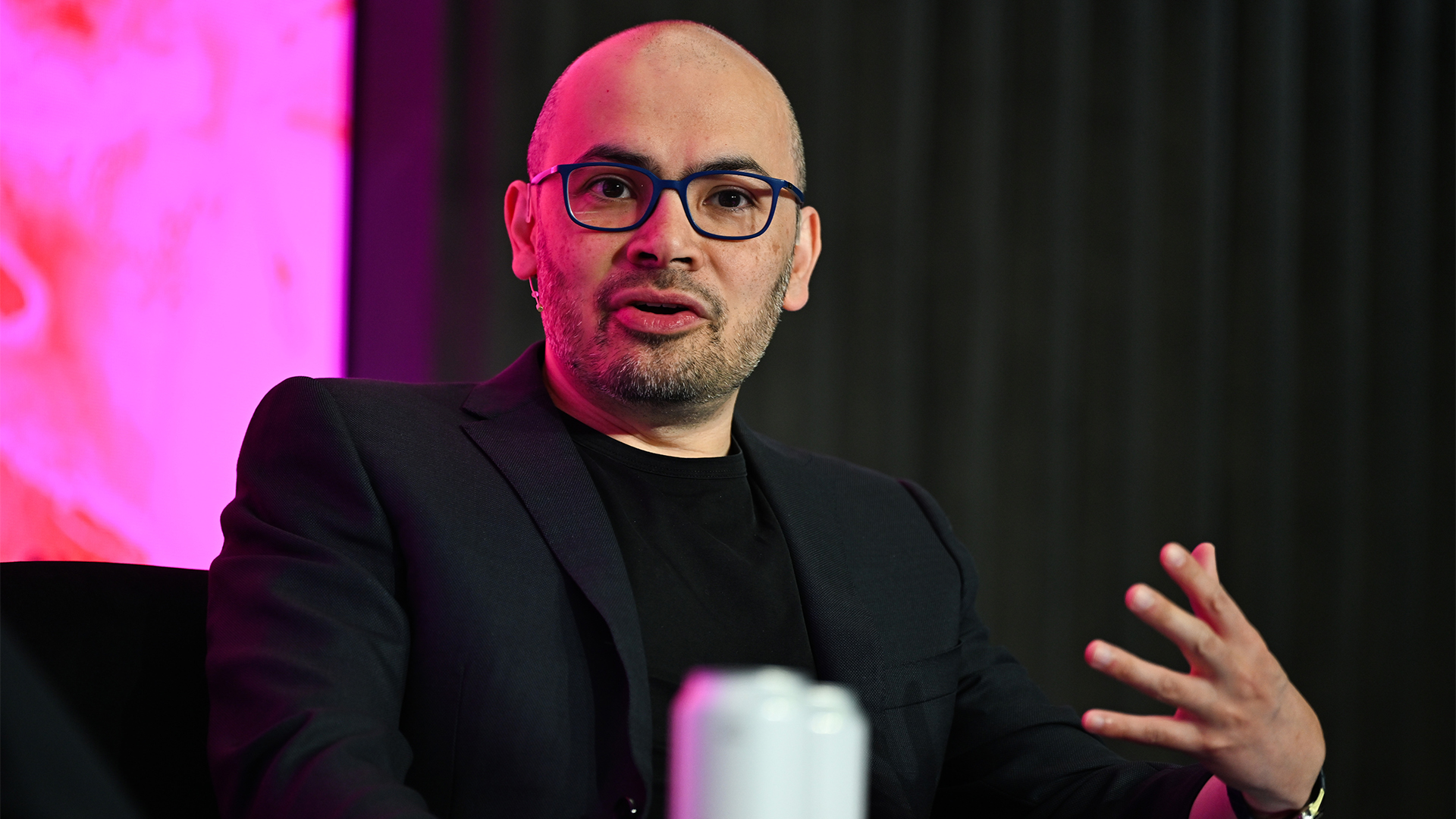DeepMind CEO Demis Hassabis thinks Meta's multi-billion dollar hiring spree shows it's scrambling to catch up in the AI race
Meta’s big AI talent push has caught the headlines, but does it show the tech giant is struggling to keep pace with rivals?


Sign up today and you will receive a free copy of our Future Focus 2025 report - the leading guidance on AI, cybersecurity and other IT challenges as per 700+ senior executives
You are now subscribed
Your newsletter sign-up was successful
Meta has been on a multi-billion dollar hiring spree in recent months, and DeepMind CEO Demis Hassabis thinks it shows the company is scrambling to keep pace in the AI race.
In a recent appearance on the Lex Fridman podcast, Hassabis suggested the tech giant is fighting tooth and nail to catch competitors in the space, noting that they’re “not at the frontier” – and top AI talent could bridge the gap.
“It’s probably rational what they’re doing from their perspective because they’re behind and they need to do something,” he told Fridman.
Spearheaded by CEO Mark Zuckerberg, Meta’s quest to secure top talent has seen the tech giant dangle eye-watering offers to high-profile figures from the generative AI space.
OpenAI CEO Sam Altman said last month that Meta had attempted to poach AI researchers with signing-on bonuses as high as $100 million. These sums pale in comparison to another big money offer put to a leading industry figure.
Zuckerberg reportedly reached out with an offer to acquire the startup launched by OpenAI’s former CTO, Mira Murati. According to reports from the Wall Street Journal, the offer was knocked back and staff at the startup were met with an onslaught of job offers.
The proposal, put to co-founder Andrew Tulloch, included a billion-dollar package that could exceed $1.5 billion over six years with bonuses taken into account, sources told the WSJ.
Sign up today and you will receive a free copy of our Future Focus 2025 report - the leading guidance on AI, cybersecurity and other IT challenges as per 700+ senior executives
Billion-dollar pay packages for a single individual may seem unlikely, but given Meta’s current focus, it’s clear Zuckerberg is willing to part with cash to secure the industry’s top figures.
In June, the tech giant unveiled the launch of the Meta Superintelligence Labs, a new division aimed at driving development of new foundation models, including its Llama range.
Notably, the unit will be led by some other high-profile hires, including Scale AI’s former CEO, Alexandr Wang and Nat Friedman, former chief executive at GitHub.
Wang, who now serves as Meta’s Chief AI officer, was brought onboard following the company’s $14.3 billion investment in the AI startup.
Hassabis noted that one key challenge facing Meta may lie in how many researchers view their role in pioneering the technology – they’re looking to “steward the technology safely into the world”.
“There’s more important things than just money,” he told Fridman. Of course, one has to pay people their market rates and all of these things, and that continues to go up.”
The quest for top AI talent
Lower down the food chain, the same talent-related issues are affecting enterprises across a range of industries. Since the advent of generative AI in late 2022, enterprises have faced acute shortages of workers with AI skills.
Research from Amazon Web Services (AWS) in early 2024 showed some employers are willing to pay a 31% premium for staff with relevant AI expertise.
The findings, based on a survey of IT leaders, showed that staff with experience in research and development also command a 30% premium. Workers with AI skills in domains such as marketing, finance, and sales, can also expect a 27% pay bump, the survey found.
Similar research from Indeed in February 2024 showed that workers with AI skills can expect to command a wage 47% higher than those without.
Higher salary demands also create a bigger strain on budgets, however. Analysis from CloudZero found that while investment in the technology is surging, expectations among top talent mean hiring is a challenge for some enterprises.
35% of companies surveyed by the firm said rising salary costs are among the biggest barriers to filling gaps in their AI talent pool, further exacerbating the issue.
All told, typical salaries top $100,000, the study found, with a quarter earning between $150,000 and $200,000.
Make sure to follow ITPro on Google News to keep tabs on all our latest news, analysis, and reviews.
MORE FROM ITPRO
- Demis Hassabis: The man behind Google DeepMind commits to ethical AI
- AI skills training can't be left in the hands of big tech
- Want to call yourself a real tech company? Mark Zuckerberg says get a technical CEO

Ross Kelly is ITPro's News & Analysis Editor, responsible for leading the brand's news output and in-depth reporting on the latest stories from across the business technology landscape. Ross was previously a Staff Writer, during which time he developed a keen interest in cyber security, business leadership, and emerging technologies.
He graduated from Edinburgh Napier University in 2016 with a BA (Hons) in Journalism, and joined ITPro in 2022 after four years working in technology conference research.
For news pitches, you can contact Ross at ross.kelly@futurenet.com, or on Twitter and LinkedIn.
-
 Kyndryl wants to help enterprises keep agents in line
Kyndryl wants to help enterprises keep agents in lineNews Controls become machine‑readable policies that AI agents can read and must obey
-
 Anthropic says $30bn funding round will help ‘fuel’ frontier AI research and infrastructure expansion
Anthropic says $30bn funding round will help ‘fuel’ frontier AI research and infrastructure expansionNews Run-rate revenue at Anthropic is surging amid continued enterprise adoption
-
 Google says hacker groups are using Gemini to augment attacks – and companies are even ‘stealing’ its models
Google says hacker groups are using Gemini to augment attacks – and companies are even ‘stealing’ its modelsNews Google Threat Intelligence Group has shut down repeated attempts to misuse the Gemini model family
-
 Why Anthropic sent software stocks into freefall
Why Anthropic sent software stocks into freefallNews Anthropic's sector-specific plugins for Claude Cowork have investors worried about disruption to software and services companies
-
 B2B Tech Future Focus - 2026
B2B Tech Future Focus - 2026Whitepaper Advice, insight, and trends for modern B2B IT leaders
-
 What the UK's new Centre for AI Measurement means for the future of the industry
What the UK's new Centre for AI Measurement means for the future of the industryNews The project, led by the National Physical Laboratory, aims to accelerate the development of secure, transparent, and trustworthy AI technologies
-
 ‘In the model race, it still trails’: Meta’s huge AI spending plans show it’s struggling to keep pace with OpenAI and Google – Mark Zuckerberg thinks the launch of agents that ‘really work’ will be the key
‘In the model race, it still trails’: Meta’s huge AI spending plans show it’s struggling to keep pace with OpenAI and Google – Mark Zuckerberg thinks the launch of agents that ‘really work’ will be the keyNews Meta CEO Mark Zuckerberg promises new models this year "will be good" as the tech giant looks to catch up in the AI race
-
 Half of agentic AI projects are still stuck at the pilot stage – but that’s not stopping enterprises from ramping up investment
Half of agentic AI projects are still stuck at the pilot stage – but that’s not stopping enterprises from ramping up investmentNews Organizations are stymied by issues with security, privacy, and compliance, as well as the technical challenges of managing agents at scale
-
 What Anthropic's constitution changes mean for the future of Claude
What Anthropic's constitution changes mean for the future of ClaudeNews The developer debates AI consciousness while trying to make Claude chatbot behave better
-
 Satya Nadella says a 'telltale sign' of an AI bubble is if it only benefits tech companies – but the technology is now having a huge impact in a range of industries
Satya Nadella says a 'telltale sign' of an AI bubble is if it only benefits tech companies – but the technology is now having a huge impact in a range of industriesNews Microsoft CEO Satya Nadella appears confident that the AI market isn’t in the midst of a bubble, but warned widespread adoption outside of the technology industry will be key to calming concerns.